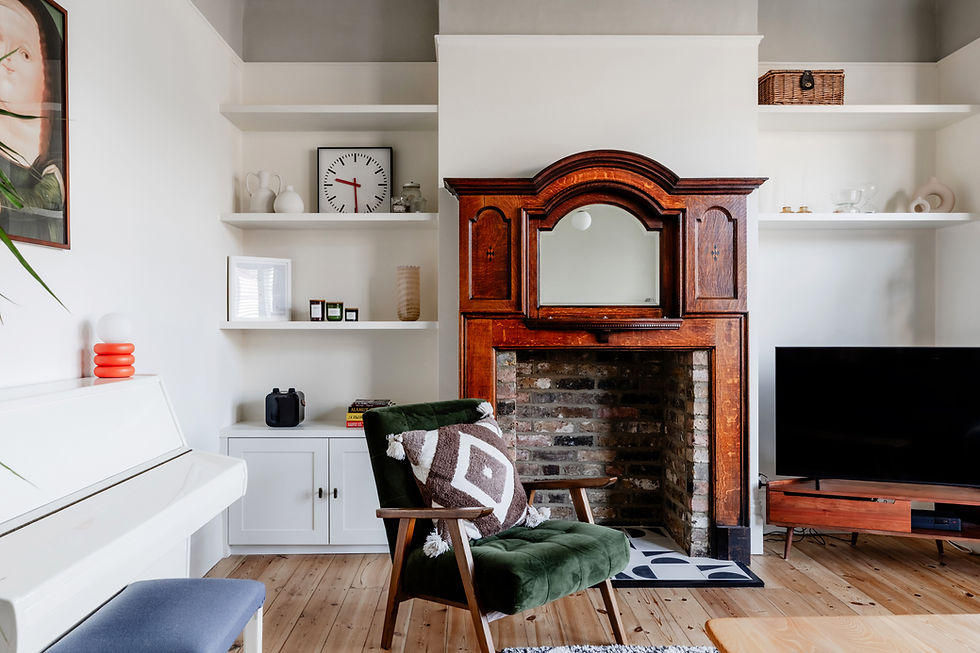The Craft Revival: Why Bespoke Joinery Matters Now
- Kallon & Co
- Aug 19, 2025
- 2 min read

In an age defined by speed and commercialisation, there is a growing hunger for the measured, the deliberate, the handmade. Nowhere is this more visible than in the resurgence of interest in bespoke joinery — a discipline that sits at the intersection of design, architecture, and fine craft.
Beyond the Standardised
For much of the twentieth century, interiors were shaped by efficiency: modular furniture, mass production, the logic of scale. While these systems brought accessibility, they also diluted the individuality of the built environment. Today, clients and designers alike are seeking an alternative — work that acknowledges context, proportion, and material honesty.
Bespoke joinery answers this with a precision that industrial production cannot. A cabinet is no longer a unit; it becomes part of a room’s architecture. A staircase is not simply circulation, but a sculptural intervention. These gestures resist the generic and instead propose the specific — the one solution that could belong only to that space.
Bespoke Joinery as Language
To speak of joinery is to speak of language. Grain, joint, and finish are its vocabulary; composition and proportion its grammar. The craftsman works not just with timber, but with light, touch, and sound. Doors close with weight; drawers glide with intention.
Such details might appear invisible, but their absence is always felt. The precision of joinery can quietly elevate an interior, in the way a finely bound book differs from one hastily printed. The difference lies not in ostentation, but in care.
Material Time
Timber carries memory. Oak, walnut, ash — each bears its own history, revealed in growth rings and imperfections. Unlike synthetic substitutes, natural materials invite ageing. They acquire patina; they register touch.
To embrace this is to accept that architecture and interiors are not static, but evolving. Bespoke joinery participates in this continuum, designed not only for present function but for future presence. It is slow craft within a fast city, insisting on durability in an age that too often prizes immediacy.
Towards Enduring Spaces in London
The renewed interest in bespoke joinery is not nostalgia, but a recalibration. It reflects a cultural shift: away from the disposable and towards the enduring; away from the general and towards the particular.
At Kallon & Co. Group Ltd. we engage with this tradition as makers. Our practice is rooted in the belief that interiors should be attuned — to material, to proportion, to the people who live and work within them.
In this sense, joinery is not an embellishment, but a foundation. It is the quiet framework through which spaces acquire their character, their rhythm, and, ultimately, their permanence.

Comments